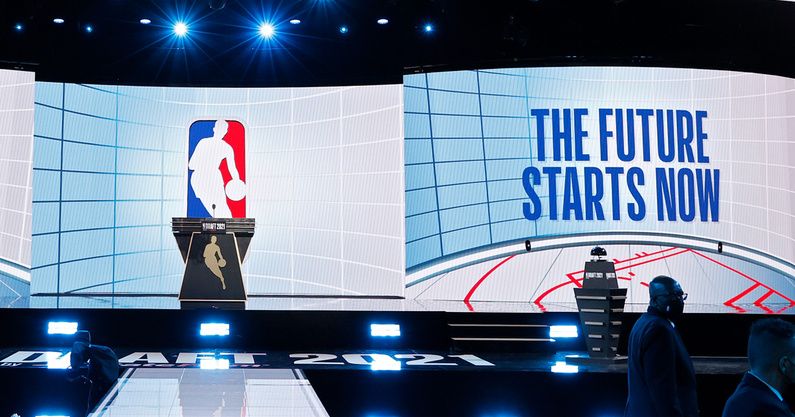Draft Props on Exchanges vs. Sportsbooks
Prophet Exchange's Alex Nickel breaks down why two-way markets are more flexible, efficient, and transparent compared to traditional sportsbooks.

Theoretical Hold on Sportsbooks
Authored by Alex Nickel: Market Operations Manager
A useful exercise for sports bettors is to calculate the theoretical hold on a given market that they are looking to wager on, in order to understand the edge of the house. The starting point on a standard 2-way spread at -110 on both sides is 4.55%. Meaning if the sportsbook took completely even action on an event, it would profit 4.55% on all the money wagered on the event. For multi-selection markets which are common in sports like soccer and hockey, the standard hold on a 3-way main market moneyline typically comes in higher at around 8-9% per market.
However, the increasingly popular outright and future markets are where sportsbooks can maximize their theoretical hold, which often goes unnoticed by bettors due to the nature of the longshot, lottery style payouts they tend to facilitate.
For example, let us take a look at current pricing in the NBA Draft market for the Number 1 overall pick. The following prices are taken from a regulated NJ sportsbook which is offering 15 different selections (players) to be the first to shake Adam Silver’s hand:
Jabari Smith -155
Paolo Banchero +210
Chet Holmgren +230
Jaden Ivey +9000…
Shaedon Sharpe +10000
Bennedict Mathurin +20000
(Odds as of 06/21/2022 at 11:30am ET)
With some players being offered as long as +20000, it may seem that there are a number of advantageous betting opportunities here to the user. However, in reality, the sportsbook is taking a theoretical hold of 22.5% on this market.
Price Efficiency on an Exchange
Prophet Exchange will be addressing the above price inefficiencies in two main ways:
1) Offering more flexibility in betting options and outcomes
2) Reducing the added vig by facilitating peer-to-peer trading
The above sportsbook and nearly all competitors in the market are only offering the opportunity for bettors to ‘back’ Jabari Smith to go #1 overall. However, what about the bettor who believes Smith will drop back a few spots in the draft? The only current option they have in the market would be to bet on another player or a handful of players to take the first slot, which, of course, is extremely challenging to overcome that 22.5% hold and become profitable in the long run. Prophet Exchange allows users to bet against a given outcome and win if it does not occur.
Due to the nature of a betting exchange, a liquidity pool that functions entirely on user-set pricing and does not have a trading team, bettors will have a far more efficient option to fade Smith to the Orlando Magic. Instead of offering him as one selection in an outright market, on Prophet this market would be structured as a 2-way markets, allowing users to bet on him and other players to go #1 - “Yes” or “No”. As a result, the closing price would look something more like Smith to go #1 -140, and him NOT to go #1 +130, for a theoretical hold of just 1.78%. This margin will become tighter and tighter as users continue to offer more advantageous prices, and Prophet will only take a small commission on a user’s net winnings.
More liquidity on Prophet will inevitably lead to even tighter prices and a more efficient market. By restructuring this outright market as a two-way offering, bettors on both sides of the outcome are getting a more beneficial price. Hence, bettors win more and lose less on every bet with Prophet Exchange
In addition to offering bettors increased flexibility and more efficient pricing, Prophet will also be a leader in transparency. As soon as users begin posting prices on a given market, Prophet calculates and displays the associated overround on a market, which is the sum of all the total odds on the outcome of a single event, or the theoretical margin.
One Way Markets
A common approach by sportsbooks to disguise markets with high hold and poor pricing is to offer 1-way markets as opposed to 2-way markets. For example, in a 1-way prop market such as "Player to Record a Triple-Double", when only the 'Yes' side is offered, there is no reliable method to calculate the vig to deduce the implied probability or true price.
By removing the house from the equation, an exchange structurally can not offer 1-way markets. When Prophet Exchange eventually offers draft and player props, all markets will be 2-way and include a “Yes” and “No” option. This allows for more transparency and price discovery.
